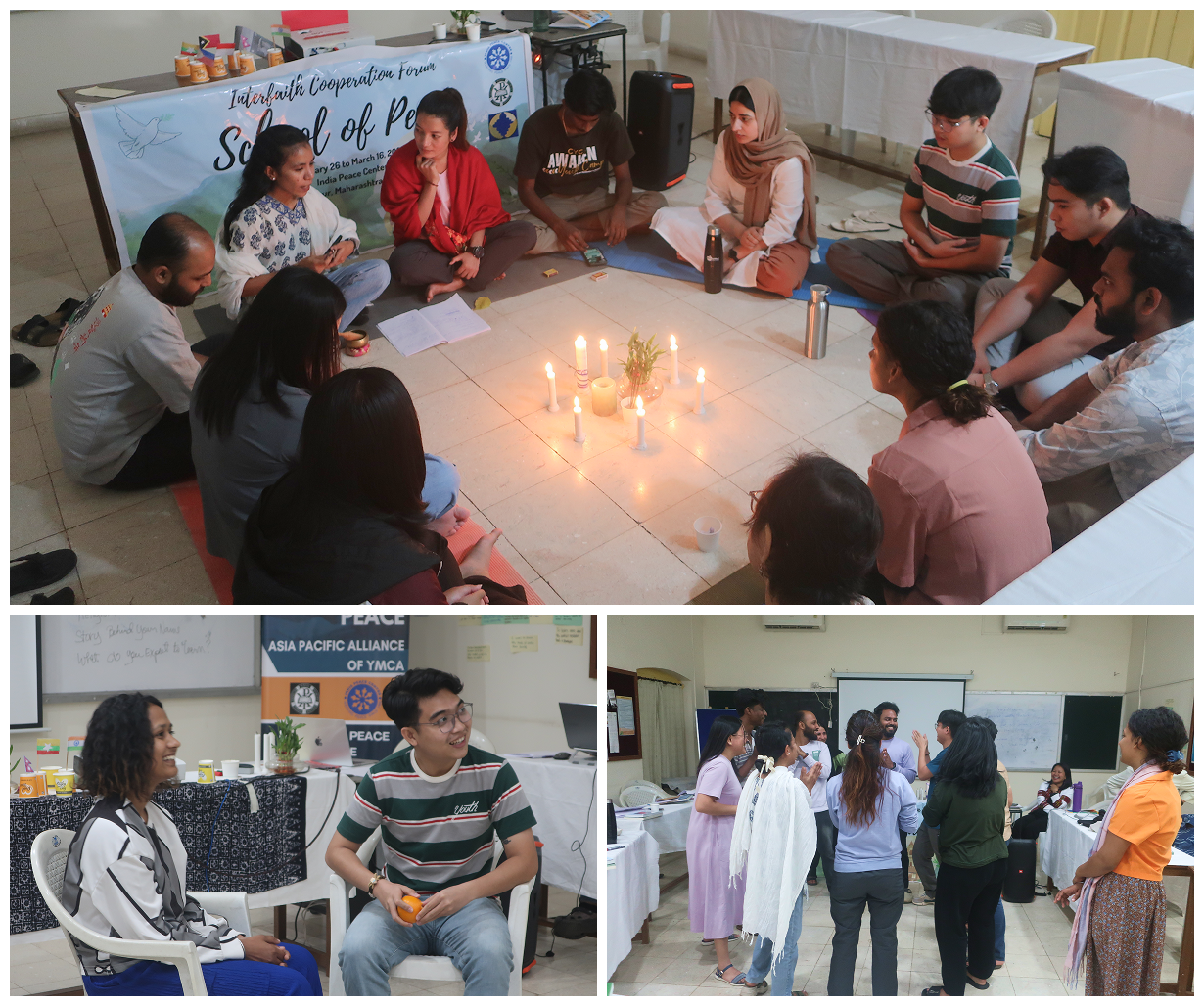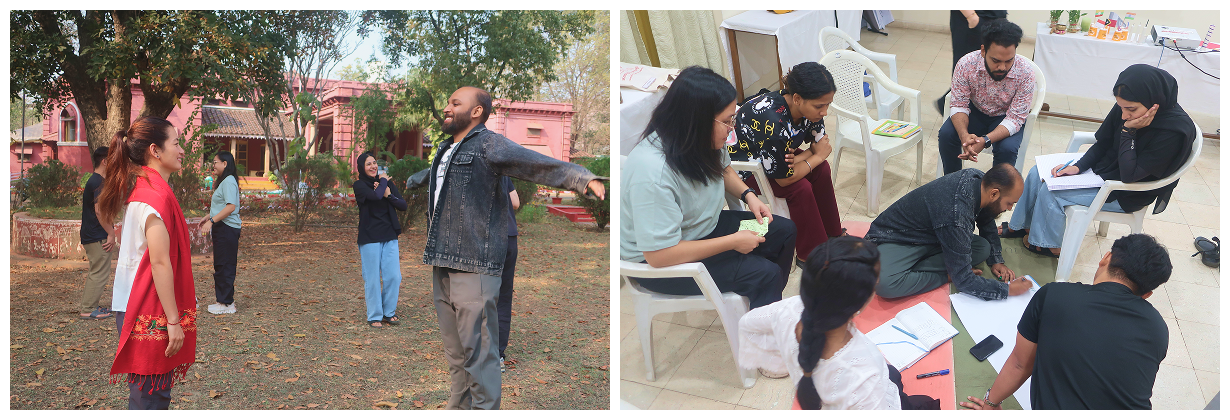School of Peace 2025 finally kicked off in Nagpur, India
Last Updated (Wednesday, 05 March 2025 22:06)
After months of preparations, the Interfaith Cooperation Forum’s (ICF) School of Peace finally started on January 26, 2025, in Nagpur, India in cooperation with the India Peace Centre (IPC).
With the long-awaited political clearance, most participants got their visas approved and traveled to India. Some more participants were expected to join a bit later. Others, unfortunately, were unable to attend due to visa difficulties and personal reasons. The first small group of eight participants, with the ICF staff, gathered on the 27th of January for the opening ceremony, where they were welcomed by Rev. Asir Ebenezer, the General Secretary of the National Council of Churches in India (NCCI), the campus where the SoP is taking place. Angelious Michael, the director of IPC and official host of the SoP, welcomed the participants as well, with the Treasurer of IPC Dr. Teijinder Singh Rawal.
After a meaningful opening ceremony, the first day's activities concluded with team-building exercises in the afternoon, with Annika Denkmann facilitating. The participants engaged in various activities to learn about their fellow attendees and themselves.

On January 28, the focus shifted to the historical roots of the YMCA and the Asia and Pacific Alliance of YMCAs (APAY), presented by NGS Retha Andoea. The attendees learned about the foundational principles of these organizations and explored their roles in promoting youth development and community service. In the afternoon, ICF Coordinator Muriel Orevillo-Montenegor led a session on "Conscientização," referring to Paulo’s Freire pedagogy of the Oppressed. She further informed about journaling techniques as participants will be required to keep a daily journal to reflect on the new learnings. On January 29, Muriel Orevillo Montenegro facilitated the first session on an introduction to world religions. This was followed by an in-depth examination of Judaism, highlighting its history, core beliefs, and teachings on peace. The session aimed to foster understanding and respect for diverse faith traditions.
The following day, January 30, brought insights into Christianity, with Fr. B. M. Thomas and Rev. Ganesh Barve leading discussions on the historical context, beliefs, and teachings of peace within the Christian faith. The first week of sessions concluded on January 31 with a session led by Muriel titled "Understanding Peace and Conflict: Examining Ways of Creating Meaningful Relationships." This session focused on introducing the participants to different types and levels of conflict and their understanding of peace. To cap the week, after a day of rest on February 1st, the participants embarked on a day trip on Sunday, February 2nd, to Gandhi’s Ashram in Sevagram.
The journey continues…
The second week found the participants finally complete. The 12 youth participants are from six different countries. India, Indonesia, Myanmar, Nepal, Philippines, and Timor-Leste spent the week, from February 3 to 7 learning about tools of conflict analysis, conflict transformation, and mediation. Cesar Villanueva from the Philippines helped the participants delve into and apply the different tools of analysis to conflicts in their own families and their communities or countries. The exercises aimed to get a better understanding of the root causes of these conflicts and find possible points of entry for an intervention. In the following sessions, the participants learned about Johan Galtung’s concept of Conflict Transformation, including the so-called mantra of conflict transformation: creativity, nonviolence, and empathy.
The weekend gave the participants time to process all the new information and some free time to explore their temporary home in Nagpur, India.

With the third week already completed, further topics were discussed. The week of February 10th started with 2 days of Forum Theatre with Annika Denkmann, learning to use it as a tool for peace while making use of conflicts discussed in the week prior, but also new conflicts were used to try and learn the method of Forum Theatre. With many different topics planned for the third week, Wednesday marked the move to the ever-critical and important topic of the climate crisis, especially concerning peace. This continued on Thursday when ICF Coordinator Muriel Orevillo-Montenegro dived into the Anthropocene, Ecofeminism, and Environmental Peacebuilding. The week also included a field trip to the stunning Tadoba Tiger Park on February 14, where participants experienced the beauty of nature firsthand. This excursion reinforced the importance of protecting Mother Earth. Embracing Indigenous Wisdom was on the schedule for Saturday the 15th, learning about Indigenous Spiritualities, focusing on the teachings of various Indigenous groups from Northeast India. The participants were challenged to reflect on how these teachings could inform their work as peacebuilders, encouraging them to incorporate traditional wisdom into modern practices.
Finally, the week concluded with a visit to All Saints Cathedral on Sunday, February 16th. The entire group was warmly welcomed to attend the Church service, and participants from the Christian faith performed David Haas's song “We Are Called,” which they had practiced a couple of days before that Sunday.
With week 4 already on the way. This week focuses on the different religious faith and their teachings of peace.
Annika Denkmann
BftW Seconded Personnel to ICF





